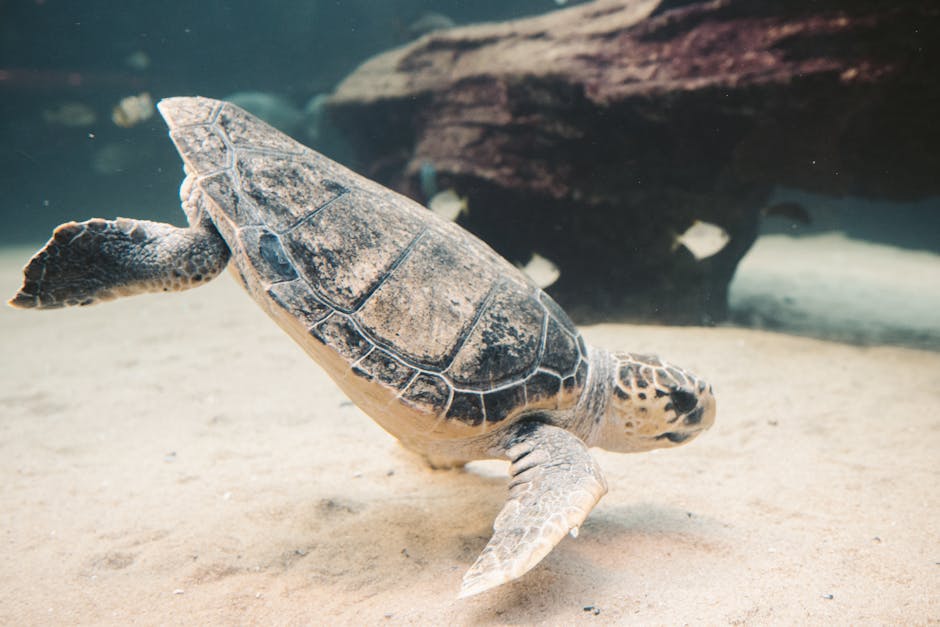The vast expanse of the ocean, a realm of mystery and hidden wonders, continues to beckon researchers and explorers. A significant question looms large: will ocean exploration, a journey deeply intertwined with marine biology and oceanography, continue to advance and yield new discoveries? The answer, undeniably, is a resounding yes. While challenges remain, numerous factors suggest a vibrant future for marine scientific endeavors.
Advancements in technology are a cornerstone of this continuing evolution. Sophisticated autonomous underwater vehicles (AUVs), equipped with advanced sensors and imaging capabilities, are revolutionizing data collection. These tireless explorers can traverse vast distances, collecting high-resolution images and data in real-time, providing unprecedented insights into the deep sea’s intricate ecosystems. Further, remotely operated vehicles (ROVs), controlled from afar, offer a degree of flexibility and safety previously unavailable, enabling scientists to conduct detailed observations and experiments in challenging environments. Improvements in materials and construction are making these vehicles more robust, capable of enduring immense pressure and hostile conditions. This technological prowess is directly impacting our understanding of marine life, ecosystems, and ocean processes.
Observational techniques are also experiencing an unparalleled surge. Developments in optical technologies and sensor arrays permit scientists to monitor the ocean’s biosphere with a degree of precision previously unattainable. Improved buoyancy compensation in underwater instruments and advanced data transmission protocols allow for constant monitoring of ocean currents, temperature fluctuations, and the movement of marine organisms, providing invaluable data on the impacts of climate change, ocean acidification, and the intricate interplay of marine species. Furthermore, the integration of satellite data with in-situ observations is providing a comprehensive understanding of the ocean’s large-scale dynamics, further driving our exploration into the deep ocean.
Beyond the technical aspects, a renewed focus on interdisciplinary collaboration is crucial. Scientists from different backgrounds marine biologists, oceanographers, chemists, geologists, and computer scientists are increasingly joining forces. This merging of expertise brings diverse perspectives and methodologies, leading to more holistic analyses of complex oceanic phenomena. Such collaborative efforts facilitate a better understanding of the interconnectedness of various ocean components, from the smallest plankton to the largest marine mammals, from the deepest trenches to the sunlit surface layers. This interdisciplinary approach is proving invaluable in tackling global challenges like climate change and managing marine resources sustainably.
Another critical factor influencing the future of ocean exploration is an evolving global commitment to marine conservation. Recognizing the profound importance of the ocean’s health and the vital role it plays in maintaining planetary balance, governments and organizations are increasingly prioritising conservation efforts. This increased awareness has spawned initiatives focusing on marine protected areas, sustainable fishing practices, and the mitigation of pollution. This commitment to responsible resource management directly translates into a greater appreciation for and a need to study the ocean. Crucially, the need for protection and sustainability also creates a robust funding environment for marine research.
Despite this promising outlook, inherent challenges remain. Funding limitations continue to be a significant obstacle. The vastness of the ocean and the complex nature of oceanic processes necessitate significant financial investments in research equipment, personnel, and fieldwork. Ethical considerations regarding the impacts of scientific exploration on marine life also necessitate thoughtful evaluation. Furthermore, concerns regarding data access, transparency, and reproducibility are often raised and need continuous attention. Addressing such concerns is crucial for maintaining public trust and ensuring the ethical and responsible conduct of oceanographic research.
Furthermore, the burgeoning field of marine genomics is revolutionizing our understanding of marine organisms. The capability to study genetic material from diverse species provides insights into evolutionary history, adaptation strategies, and the intricate interactions within marine ecosystems. This capacity to explore the genetic make-up of ocean species enables the development of innovative conservation strategies tailored to specific organisms and environments. A better understanding of ocean life’s genetic makeup will be a pivotal part of preserving these species in the future.
Ultimately, the future of ocean exploration hinges on a sustained commitment to research and development, coupled with responsible resource management. The ocean’s mysteries are interconnected with global challenges, demanding innovative approaches, sustained investments, and ethical considerations. Scientists, policymakers, and the broader public must actively support and participate in this crucial endeavor to ensure that the depths of our planet are not only explored but also understood, protected, and sustained for generations to come. Continued exploration is not just a matter of scientific curiosity; it’s a vital component of securing a healthy and sustainable future for our planet. The journey into the ocean’s depths promises to be an exciting one, filled with new discoveries and a deeper appreciation for the incredible complexity of our planet’s largest and most vital ecosystem.
